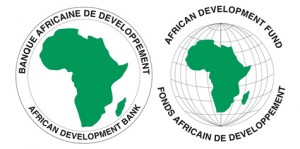AfDB Board approves $120m loan for Ghana’s transport sector
 The Board of Directors of the African Development Bank (AfDB) has approved a $120 million corporate loan – the first private-sector investment in Ghana’s transport sector to support Ghana Airports Company Limited’s (GACL) capital investment programme.
The Board of Directors of the African Development Bank (AfDB) has approved a $120 million corporate loan – the first private-sector investment in Ghana’s transport sector to support Ghana Airports Company Limited’s (GACL) capital investment programme.
It entails the construction of a new terminal at Kotoka International Airport (KIA) in Accra, and the rehabilitation of other airports managed by GACL including Kumasi, Tamale, Ho and Wa Airports.
According to a statement issued by the bank and copied to Ghana News Agency, the total loan facility for the programme is $ 400-million to be financed with corporate loans from AfDB and other development financial institutions as well as commercial banks.
It said the programme would support the country’s ambition of modernising vital infrastructure in Ghana through upgrading the airport to a gateway for West Africa and a regional aviation hub.
The programme would also increase air passenger handling capacity and improve airport safety standards and efficiency at KIA and the regional airports.
The statement said through strengthening the country’s airport infrastructure, the programme is expected to boost the economy, in particular the growing tourism and oil and gas sectors, through facilitating connectivity to markets and reducing the cost of doing business.
It said developing national airport infrastructure would be critical building blocks for regional integration as Ghana has been serving as a platform in connecting regional landlocked countries to international markets and support inter-African trade.
The statement said the expansion of KIA is expected to generate an estimated 900 temporary jobs during the two-year construction period and about 760 permanent jobs during operations and maintenance phase.
The project aligns with both internal and external policies and strategies. It supports the Ghana Shared Growth and Development Agenda which emphasises the need for rehabilitating and expanding infrastructural facilities especially in the transport sector.
At sector level, the programme is in line with the priorities identified in the National Airport System Plan 2014.
The AfDB’s financing would play an important role by providing much needed long-term finance, enforcing environmental and social standards and working to enhance the development impact of the project.
The infrastructure nature of the programme is part of AfDB’s 10-Year Strategy as well as the bank’s Country Strategy for Ghana, which focus on improving infrastructure and integration to regional markets.
Meanwhile, the Board of Directors of the Bank has approved loans and grants amounting to $428.43 million to finance projects in energy, infrastructure, transport and water and sanitation in seven other African countries
They are the Gambia, Tanzania, Zimbabwe, Guinea Bissau, Guinea, Senegal and Côte d’Ivoire.
In Tanzania, the approved investment comprises a $97.42-million AfDB loan and $44.29 million from the Africa Growing Together Fund to finance phase two of the Dar es Salaam’s Bus Rapid Transit (BRT) Project.
The project involves the construction of 20.3 km of exclusive BRT lanes and Non Motorised Transport facilities along Kilwa Road corridor as well as Kilwa road itself.
Zimbabwe would receive a $16.15-million grant from the resources of the Zimbabwe Fund to finance the second phase of the country’s Urgent Water Supply and Sanitation Rehabilitation project to be implemented in Harare, Chitungwiza, Ruwa and Redcliff with an estimated 1.9 million population.
The project aims to protect public health through service improvement, preservation of physical assets, and resuscitation of capacity and improvement of financial sustainability of the water and sanitation service providers.
The Board also approved a multinational Gambia River Basin Development Organisation Energy Project which would benefit the Gambia, Guinea-Bissau, Guinea and Senegal with combined loans and grants financing amounting to $64.93 million.
The project, which falls within the framework of the countries’ regional cooperation and integration, seeks to promote the sharing of energy and improve electricity supply by providing renewable, clean and affordable power.
It comprises the development of a 128-MW hydro-electricity dam with an annual output of 402 GWh; and an interconnection network of 1,677 km, comprising 15 transformer stations and two dispatching centres.
The Gambia would receive $5.26 million and Guinea-Bissau and $ 6.32 million, while Guinean would get $64.94 million and Senegal $59.66 million in soft loans.
The board approved a $14.4-million grant to help Côte d’Ivoire rebuild its production capacity destroyed during the conflict which affected the country.
The Support to Industrial Competitiveness Enhancement Project would leverage the competitiveness of industrial sector firms; associations of fruits and vegetables producers; companies involved in the fruits and vegetables value chain (suppliers of inputs, packaging, transport, and provide decent job opportunities to the youth and women within the modern Ivorian economy.
It would also strengthen State agencies in charge of supporting the enhancement of the industrial sector’s competitiveness.
Source: GNA
